How Mylan raised the cost of EpiPen autoinjectors by 500% and squeezed a competitor from the market
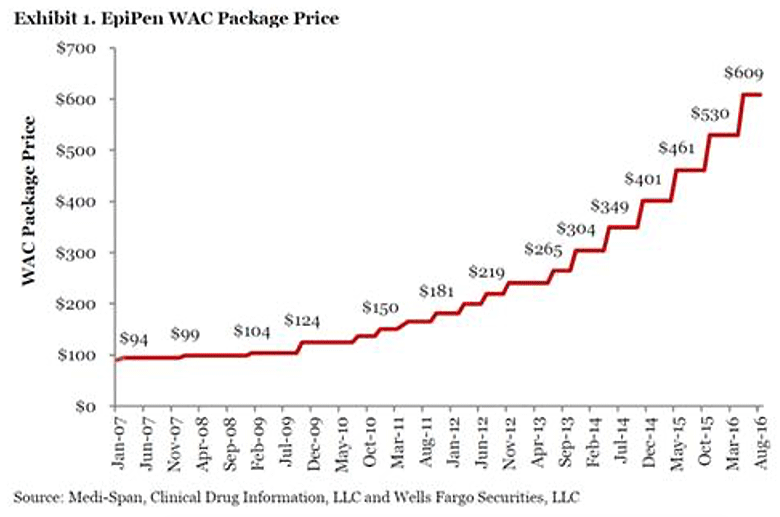
The American company Mylan attracted attention in May 2016, when it once again inflated the prices of a vital medicine that is extremely necessary for people suffering from severe allergies: the EpiPen syringe (EpiPen) with epinephrine (adrenaline) - solution for emergency intramuscular Injection if a person has an anaphylactic shock.
When the EpiPen hit the market in 2007, pharmacies paid less than $ 100 for a set of two syringes. Since then, the price has steadily increased. In 2009, it increased to $ 103.50 (already at that time, citizens began to complain about the inability to buy a syringe at such a high price. But in July 2013, the price rose to $ 264.50. In May 2015 - to $ 461. It turned out that it wasn’t limit. In May 2016, the company raised the price for pharmacies to $ 608.61. For the final buyer, the price of plastic syringes is at least $ 640.
Doctors recommend patients to carry with them two autoinjectors with EpiPen adrenaline: 0.15 mg green and 0.3 mg yellow. The second is needed just in case anaphylactic shock was extremely severe. The patented EpiPen design allows you to stick a syringe and inject the drug intramuscularly, even in a semi-conscious state. You need to grab the syringe tube, remove the blue fuse - and just stick the yellow lid with a needle in your leg or hand. The needle will automatically come out of the cap and enter the body, and adrenaline is injected into the muscle.
')
Despite the patented design (in fact, only a separate structural element was patented there), Mylan had competitors. The photograph shows several autoinjectors that are available for sale in the United States. The leftmost rectangular shape is the autoinjector Auvi-Q from Sanofi.
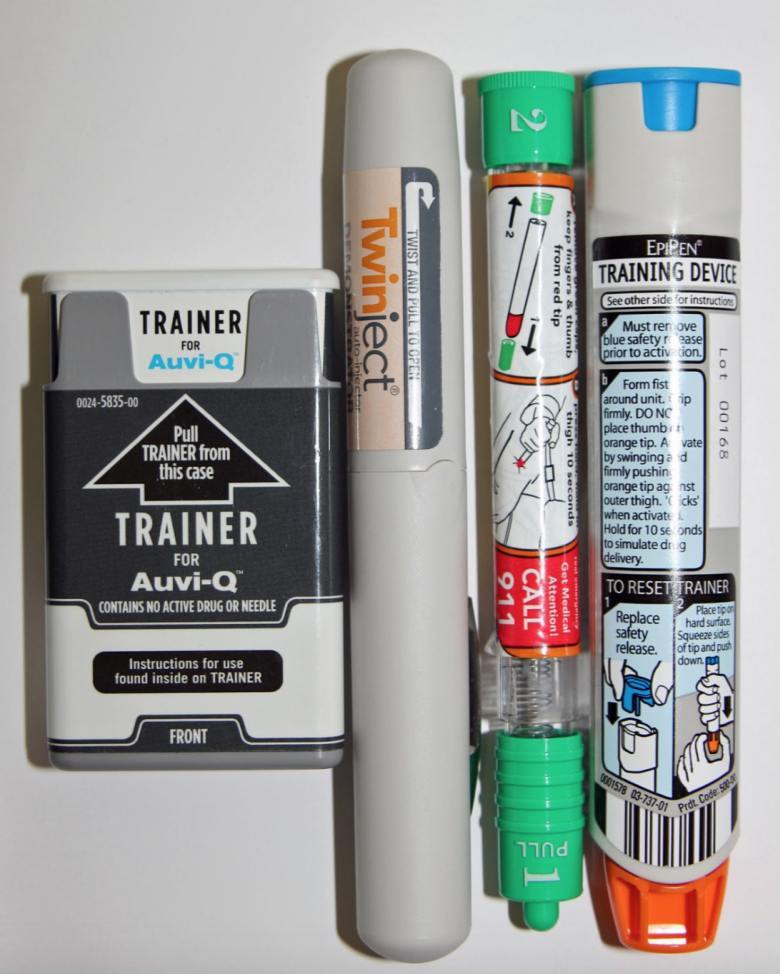
But in reality, Auvi-Q devices are not as popular as the EpiPen. Moreover, the share of Auvi-Q in the US market even falls.
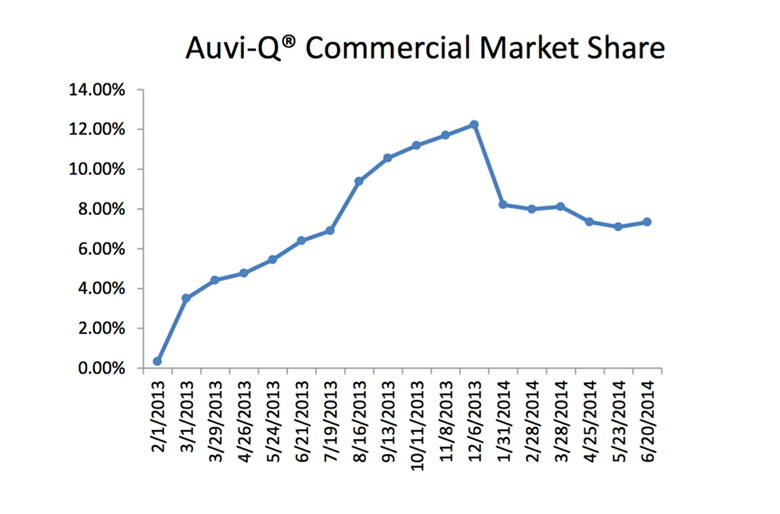
What's the matter?
This question must be answered by the Federal Court of New Jersey, which is now reviewing Sanofi’s lawsuit against Mylan on charges of unfair competition in violation of antitrust laws.
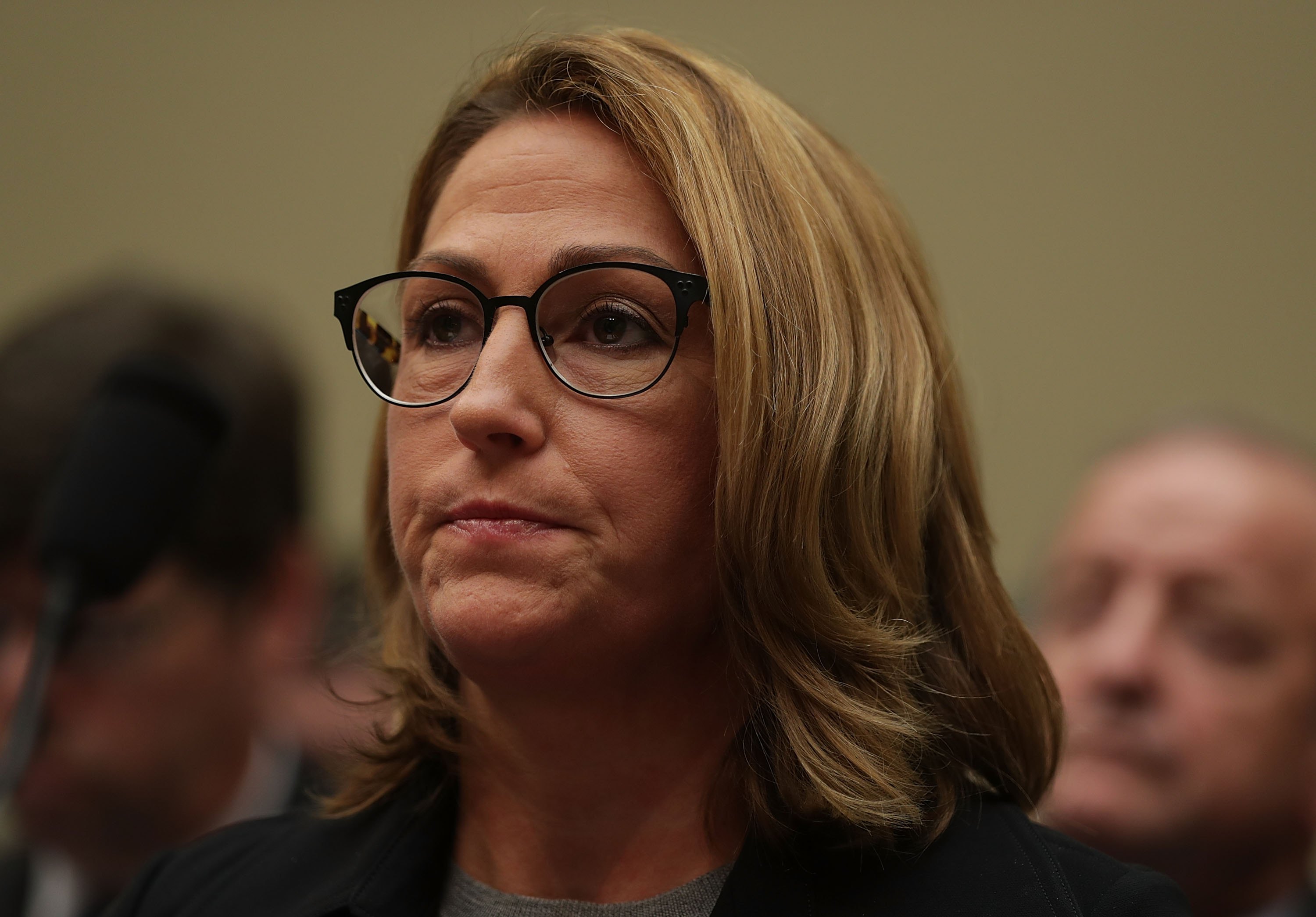
Heather Bresh, CEO of Mylan
Sanofi entered the market in 2013, when Mylan was virtually the absolute monopolist in the market. Originally sold autoinjectors at the same price as Mylan. And at first, the results were encouraging: the market share was growing. But then, at the same time as Mylan began to raise prices, he began to apply unfair competition methods, which are listed in the statement of claim.
1. Big discounts for pharmacies on EpiPen autoinjectors, provided that pharmacies refuse to purchase Auvi-Q autoinjectors. This is a well-known tactic that Microsoft has used in the fight against Linux desktop distributions, negotiating discounts with PC assemblers. The same company did Intel against AMD.
2. Granting discounts to wholesale buyers (for example, schools), too, provided that they refuse to purchase competitors' products, including Auvi-Q (see the screenshot from the discount certification form).

3. Discredit a competitor among users and doctors who recommend autoinjectors to patients with a risk of severe allergy. Handouts with EpiPen agitation directly compare it with a competitor Auvi-Q (in the US, such a comparison is allowed by law), and in this leaflet Auvi-Q is displayed as an “unapproved” and “not recommended” means.
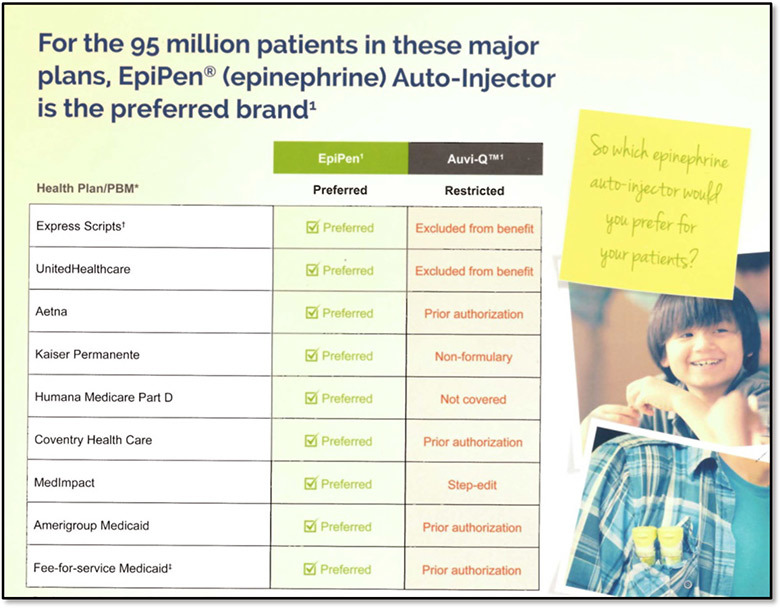
4. Providing “unprecedented” discounts to commercial insurance companies, pharmaceutical managers, and Medicaid state agencies (all of them are so-called “third payers,” that is, outsiders who pay the cost of the drug to the patient). All these discounts were provided on the same conditions - refusal to refund the cost of Auvi-Q under the terms of their insurance programs.
Sanofi notes that Mylan discounts have risen from less than 10% to 30% and more. As a result of this policy, more than 50% of the American market was closed for Sanofi. Soon after the introduction of discounts in December 2013, Sanofi’s share in the US market fell from almost 13% to 8%, and then to 7%. For comparison, the affected company cites statistics in the Canadian market, where Mylan did not have the opportunity to apply such a monopoly effect due to the peculiarities of local legislation. There, no drop in the market share of a competitor is noted: it is not 7%, but almost 25%.
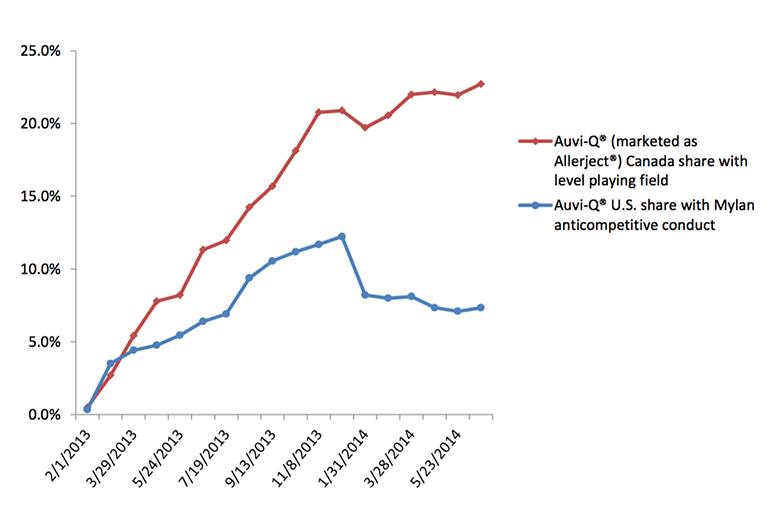
True, for an ordinary American patient, the Auvin-Q autoinjector is unlikely to seem like a bargain. Initially, it was priced at about $ 500, like an EpiPen, but then the device was bought by another pharmaceutical company, Kaléo, which increased its cost to $ 4,500 ! At this price, the autoinjector Auvi-Q is now for sale. Kaléo assures customers that there is nothing to worry about: insurance companies compensate for everything.
It seems that the cost of medical services in the United States is very high. Without insurance there will not survive. One hope for homemade autoinjectors , which can be assembled by hand. In reality, the design of the EpiPen is quite simple, and most of the details can be printed out on a 3D printer.
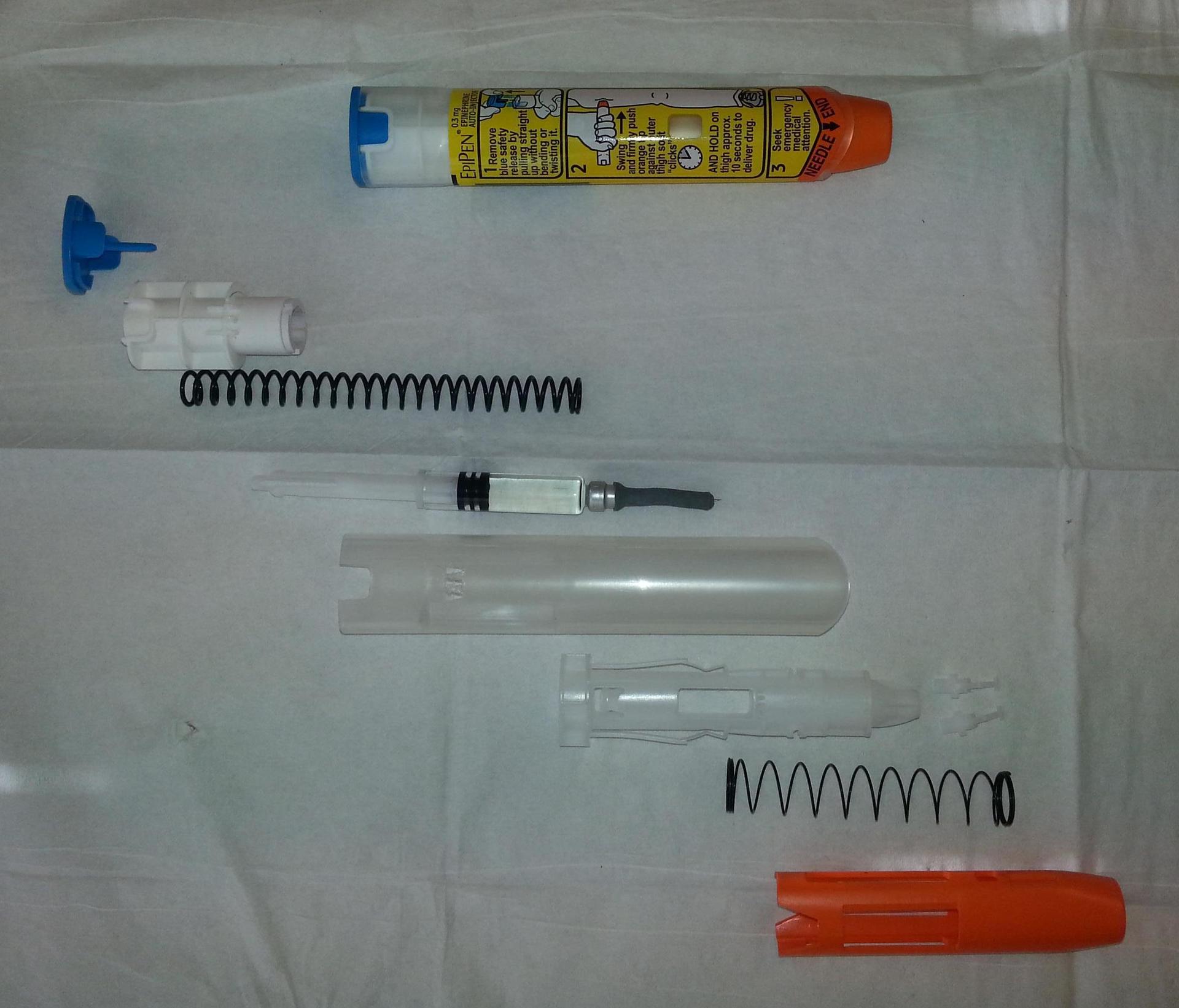
It is not entirely clear what to pay here for $ 640, and even more so $ 4500.
Source: https://habr.com/ru/post/403435/
All Articles